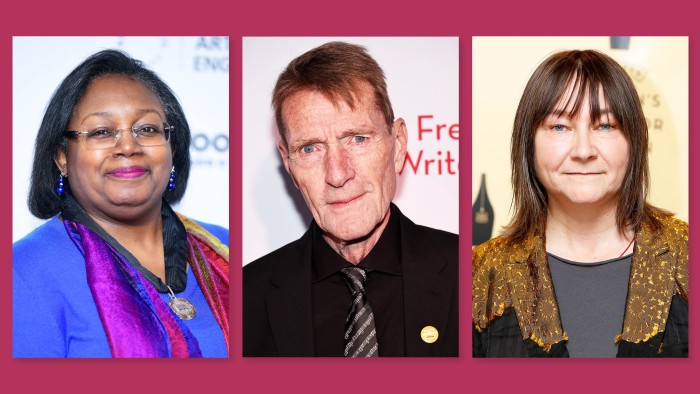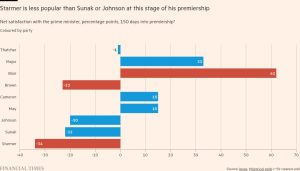Lee Child and Malorie Blackman urge English literature syllabus reform

Unlock the Editor’s Digest for free
Roula Khalaf, Editor of the FT, selects her favourite stories in this weekly newsletter.
Lee Child, Malorie Blackman and Penguin Random House have called on ministers to reform the English literature curriculum in schools in England, warning that writers of colour are under-represented in the classroom.
The call to make school syllabuses more reflective of social diversity — which has been organised by the publisher PRH and backed by other authors including Dawn French, Ali Smith and Stephen Fry — comes as the Labour government consults on an overhaul of the curriculum.
In a letter to education secretary Bridget Phillipson and Becky Francis, who is leading the government review, more than 180 signatories said the English literature curriculum was “systematically failing to represent the diversity of our society in terms of the authors, stories and characters that are taught”.
Despite 37 per cent of England’s school children identifying as Black, Asian or minority ethnic, 98.5 per cent of English literature GCSE students did not study a text by a writer of colour, said the letter seen by the Financial Times. It was also signed by writers Afua Hirsch and Marian Keyes and the publishers Hachette, Bloomsbury and Profile Books.
The call to update the curriculum comes a month after research published by the National Literacy Trust, a charity, found that the share of children reading for enjoyment was at its lowest levels since records began in 2005.
In 2024, just 34.6 per cent of children and young people between the ages of eight and 18 said they enjoyed reading for pleasure in their free time.
The letter — whose other signatories included the Publishers Association trade body and the Black Writers Guild — said this “reading for pleasure crisis” was directly linked to the fall in the number of students selecting English literature as a subject at A-level.
Some 54,000 pupils enrolled in the course in 2023, down from 79,000 in 2016.
“Reading widely is 99 per cent of education — new writers and new texts are portals to unfamiliar worlds, times, thoughts, beliefs and people,” said Child, creator of the bestselling Jack Reacher series. “No one should be ignored or under-represented, because everyone has something great to offer. Reading changes all our lives — and always for the better.”
In 1999, the Macpherson report commissioned after the murder of Black teenager Stephen Lawrence highlighted the “failure of the national curriculum to reflect adequately the needs of a diverse multicultural and multi-ethnic society”.
“This is still the case today,” the letter said, citing literature’s role in developing “understanding, tolerant and compassionate citizens”.
“Who is writing the history that is taught is almost as valuable as what is being taught,” said Zeinab Badawi, an author and president of the School of Oriental and African Studies, University of London. “We need diverse perspectives of major historic events otherwise we will miss critical factors leading to a prejudicial and partial understanding of the past.”
A separate review led by former Labour education secretary Charles Clarke this year called on the government to design a “far more contemporary and forward-looking” secondary school curriculum that reflects the “diversity of modern Britain”.
The Department for Education said: “High and rising standards are at the heart of the government’s mission to break down barriers to opportunity and ensure all children have the best start in life.
“The review [led by Francis] seeks to make sure children benefit from a curriculum that represents them and their families, regardless of background, which includes the subject content and texts studied in English.”
#Lee #Child #Malorie #Blackman #urge #English #literature #syllabus #reform






